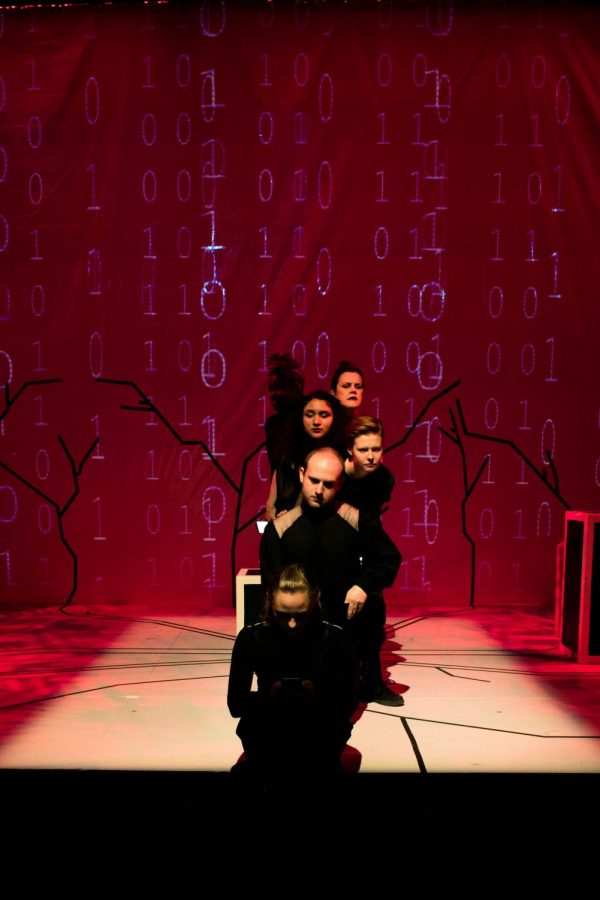UI play explores dating and relationships in the technology age
UI Theater Department’s performance of Love and Information debuts Thursday night.
January 16, 2019
So you just swiped right on Tinder but then left your match on read. Your blue screen commands your attention, but this match does not. Did they overshare? Are they inauthentic? Was their pickup line copied from wikiHow?
Regardless of the reason, you’ve now turned into a digital apparition, swiping and snapping as Casper. In the new age of technology, communication can be sparse and misconstrued, blurring the lines between dating, “talking,” and estrangement. In 2019, speed dating has taken on a new meaning. It’s time to re-evaluate.
The concept of relationship communication will be tossed to audiences, starting today. Caryl Churchill’s 2012 play is a constant reinvention that will provide a vantage point for theater-goers to enjoy a thought-provoking performance, as well as reflect on their decisions in communication.
For director Bo Frazier, the play is an open opportunity to create a message as an ensemble about the ways we do and do not communicate, specifically highlighting who is given voice to communicate.
“We were able to make a statement about society without having it too on the nose or shoving it down the audience’s throat,” Frazier said. “It’s not realism, so we can do what we want, design- and acting-wise; you can’t do it wrong. I knew it would be a really fun show to do without pressure to do a certain thing. No two versions of the show would ever be alike, you just have fun and do your own thing.”
Frazier began an acting career in London, then cofounded an Off-West-End theater company, London Theater Workshop. Frazier then moved to New York City and Off-Broadway productions. Now, Frazier is pursuing an M.F.A. at the UI and directing.
RELATED: UI Theater Department to present a science-fiction play about the extremes of technology
The play’s structure comprises seven sections. In each section, there are smaller scenes, some lasting under a minute, others for a few. The brevity may illustrate the fleeting feeling of disappointment and desire and perhaps even love itself. While the order of sections one through seven are set in stone, the smaller scenes are not. These 57 scenes must stay in their section, but they are free to be moved here and there at the director’s discretion for the purpose of achieving comedic or dramatic tone.
“Depending on how we play the scenes … and who’s acting, we’ve crafted a narrative arc in each section,” Frazier said. “Each section conveys how we communicate or miscommunicate. Once the actors begin to miscommunicate, they separate and get further from each other and stop looking at each other. None of the actors have ages, genders, or locations. It’s up to us as an ensemble to decide what the circumstances are for each scene.”
The cast is a diverse and inclusive dozen of actors who each play numerous characters — there are more than 100 characters. To say the least, “It’s complicated.”
Actors who were flexible, energetic, and creative received callbacks. Frazier began casting in August and began rehearsing in November. The cast’s props only include 12 cellphones, one iPad, and one laptop. The text dialogue will be projected behind the actors, allowing the audience to view Snapchat and Tinder conversations, while the actors do not speak.
Frazier’s show will be one of the first to primarily use technology. The scenes Churchill wrote will be depicted with technology to stay true to 2019, modernizing the play, Frazier said.
The show will run from Thursday to Jan. 20, ending with a 2 p.m. matinee. Tickets are available an hour before the show in the theater lobby, free for students, $5 for general admission.






